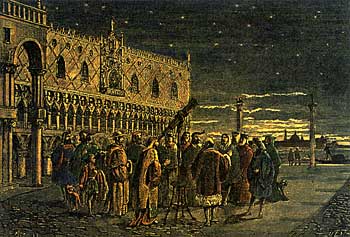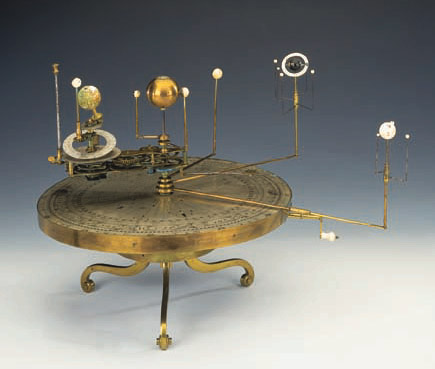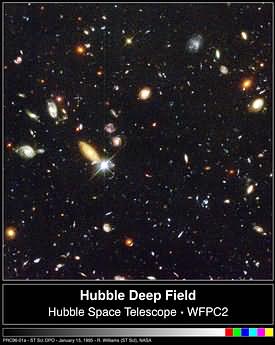 A Story About ...
A Story About ... 
Epicurus (341-270 B.C.) .... "there are infinite worlds both like and unlike this world of ours ... we must believe that in all worlds there are living creatures and plans and other things we see in this world"
Metrodorus of Chios (fourth century B.C.)
"To consider the Earth as the only populated world in infinite space is as absurd as to assert that in an entire field of millet, only one grain will grow."
Lucretius (c 99-55 B.C.) ... "Granted, then, that empty space extends without limit in every direction and that seeds innumerable are rushing on countless courses through an unfathomable universe ... It is in the highest degree unlikely that this earth and sky is the only one to have been created ... So we must realize that there are other worlds in other parts of the universe, with races of different men and different animals"
 Anti-Pluralism
Anti-Pluralism
"There is and ever will be one only-begotten and created heaven" (a unique Creator implies a unique creation)
"The world must be unique. There cannot be several worlds" (need a unique "prime mover" to account for order)
|

"Innumerable suns exist; innumerable Earths revolve about these suns . . . Living beings inhabit these worlds."
"If you had discovered any planets revolving around one of the fixed stars, there would now be waiting for me chains and a prison among Bruno's innumerabilities. I should say, exile to his infinite space."

". . . God has interposed in the history of mankind in a special and personal manner; . . . that one, having a special relation to God, came from God to men in the form of a man . . . [Consequently] what are we to suppose concerning the other worlds which science discloses to us? Is there a like scheme of salvation provided for all of them? Our view of the saviour of man will not allow us to suppose that there can be more than one saviour. And the saviour coming as a man to men is so essential a part of the scheme . . . that to endeavour to transfer it to other worlds and to imagine there something analogous as existing, is more repugnant to our feeling than to imagine those other worlds not to be provided with any divine scheme of salvation . . ."
|

|
Mars: The Story in Microcosm
 |  |
| Percival Lowell, Mars, 1895 | Viking I Orbiter, 1980 |
Viking 1,2 (1976) orbiters and landers

 Global Surveyor (1996)
Global Surveyor (1996)
Pathfinder (1997) lander and rover
Mars Exploration Rover (2004, current and 24 January, 9 pm)
|
Life on Mars ... elsewhere in the universe ... does it matter?